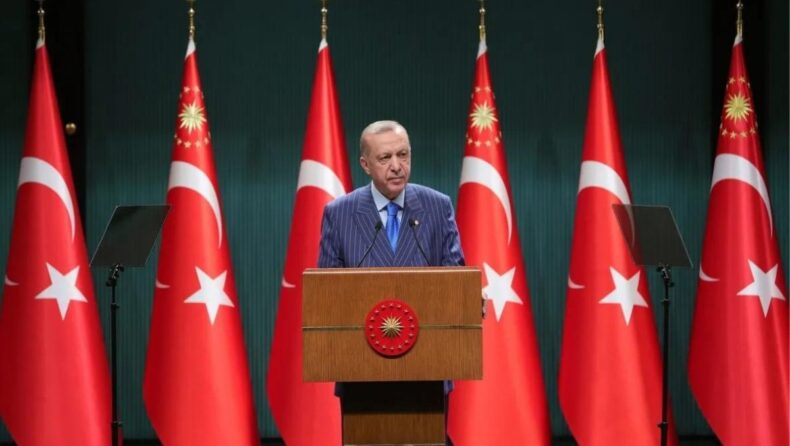
After Mediterranean issue, Turkey’s recent dispute comes as it accuses Greece of airspace violations
Turkey on Wednesday announced that it is halting talks with Greece amid rising differences between the two NATO members. The recent dispute arose when Turkey President Recep Tayyip Erdogan accused Greece of airspace violations.
The dispute marks the latest reversal in long-friendship between the two countries. After a five-year hiatus, the two NATO members resumed talks last year. It was to settle their differences over the Mediterranean Sea and other bilateral issues. The talks have made little progress, with the countries frequently exchanging barbs.
Erdogan announced on Wednesday that Turkey had cancelled a bilateral cooperation platform with Greece known as the High-Level Strategic Council. He also added in a speech to legislators from his ruling party that Ankara desired a foreign policy with “strong character.”
“We broke off our high-level strategy council meetings with Greece,” Mr. Erdogan told a meeting of his party’s lawmakers in Ankara, adding: “Don’t you learn any lessons from history? Don’t try to dance with Turkey.”
The talks had made little progress, but they were a way for the two countries to air their grievances without resorting to a potential armed standoff, as had happened just two years before. Mr. Erdogan’s pivot on the talks appeared to have been triggered by comments made by Greek Prime Minister Kyriakos Mitsotakis during a visit to the United States last week.
Turkish Foreign Minister Mevlut Cavusoglu said on Tuesday that Greece is violating international agreements. It define the status of the Aegean Sea’s demilitarized islands. Unless Athens changes its approach, Ankara will challenge the islands’ status.
Turkey President says he will no longer talk to Greek PM
Earlier Turkey President has stated that he will no longer speak with Greek Prime Minister Kyriakos Mitsotakis and will cancel a key meeting between their two governments, accusing the Greek leader of antagonizing Turkey.
During a recent visit to the United States, Erdogan accused Mitsotakis of recommending to US officials that Turkey not purchase F-16 fighter jets.
Erdogan then accused Greece of harboring followers of US-based religious leader Fethullah Gulen, whom Turkey accuses of being behind a failed coup attempt in 2016, as well as of establishing military bases against Turkey. Gulen has consistently denied the Turkish accusation.
“We had agreed to not include third countries in our dispute with him. Despite this he had a visit to the US and talked at the Congress and warned them not to give F-16s to us. He no longer exists for me. I will never agree to meet with him. We will continue our way with honorable politicians.” Erdogan said.
Erdogan was apparently referring to Mitsotakis’ speech to Congress on May 17. He stated that the US should avoid creating a new source of instability on NATO’s southeastern flank.
“The last thing that NATO needs at a time when our focus is on helping Ukraine defeat Russia’s aggression is another source of instability on NATO’s southeastern flank,” the Greek leader said. “And I ask you to take this into account when you make defense procurement decisions concerning the eastern Mediterranean.”
Greece says ‘no’ to confrontation:
Greek government spokesman Yiannis Economou stated that Athens “will not engage in a statement confrontation with Turkey’s leadership. Greek foreign policy is strongly based on history, international law, and our alliances,” he said.
Nikos Dendias, Greece’s Foreign Minister, defended Mitsotakis’ speech, saying “nothing was said that goes beyond the bounds of standard Greek positions.”
“We have always referred to all the leaders of countries, and to President Erdogan, with due respect for the leader of a foreign country,” Dendias told Skai Radio.
Greece and Turkey are NATO allies, but their relations have been strained by a number of issues. It includes competing maritime boundary claims that affect energy exploration rights in the eastern Mediterranean.
Tensions erupted in 2020 over exploratory drilling rights in Mediterranean Sea. They are the areas where Greece and Cyprus claim their own exclusive economic zone. It eventually led to a naval standoff.
Read More- Why Turkey is opposing Sweden and Finland’s bid to join NATO?













